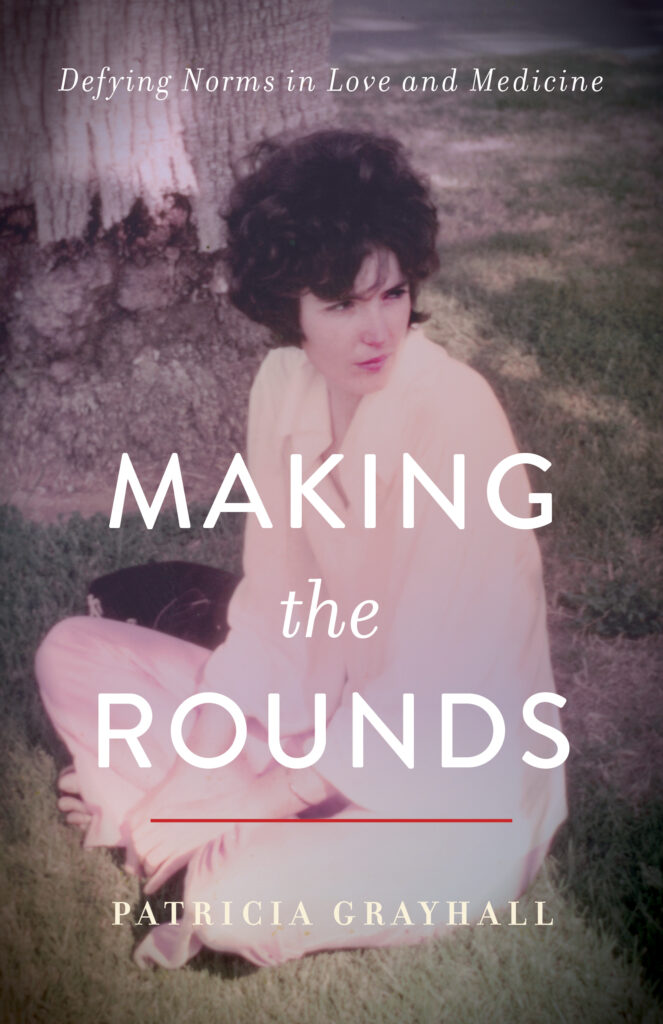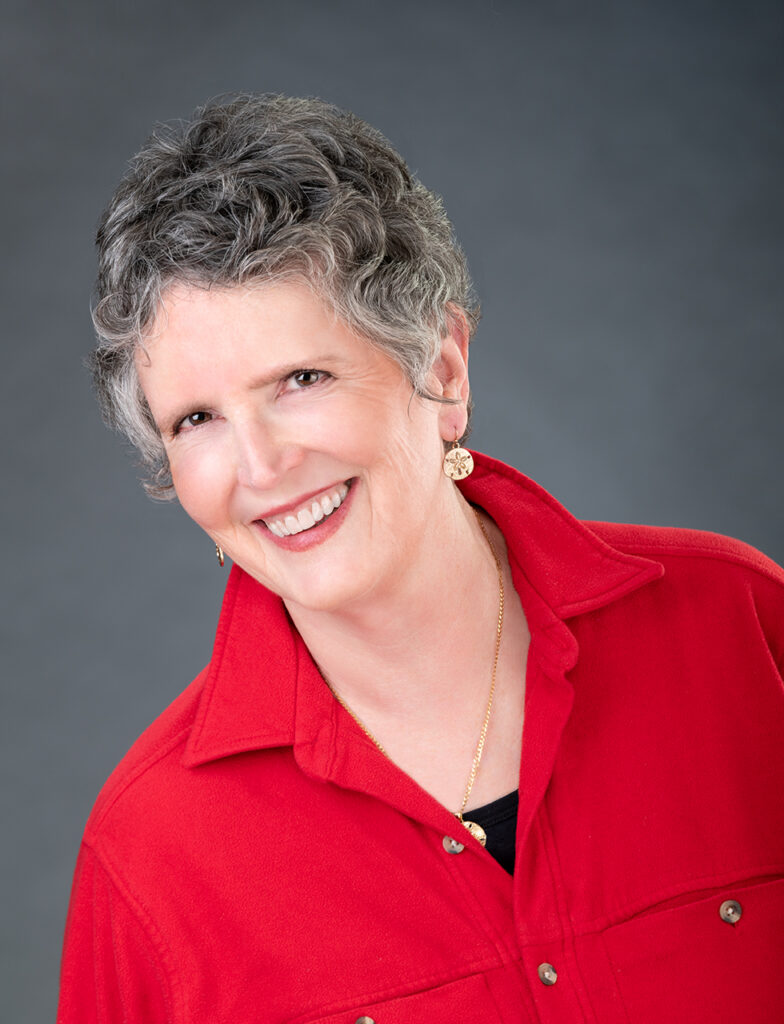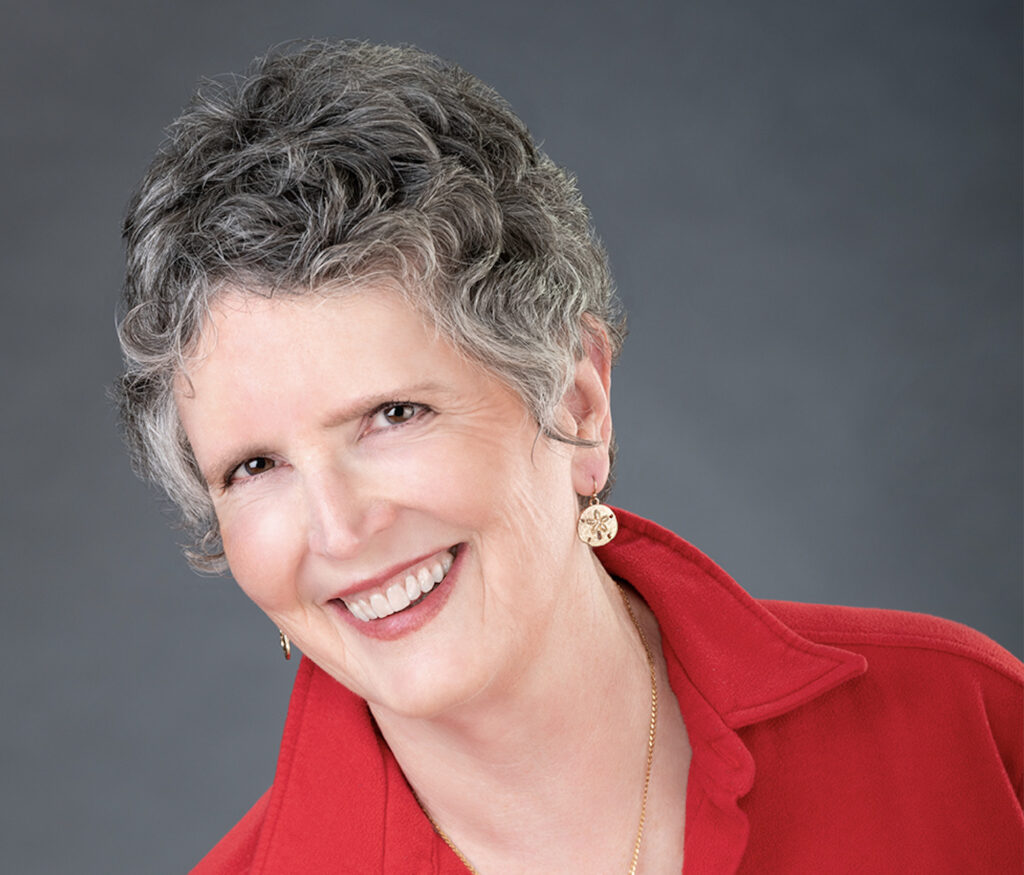Meet the author: Patricia Grayhall
Patricia Grayhall is a medical doctor and author of Making the Rounds; Defying Norms in Love and Medicine. After nearly forty years of medical practice, this is her debut, very personal, and frank memoir about coming out as a lesbian in the late 1960s and training to become a doctor when society disapproved of both for a woman.
Patricia lives with the love of her life on an island in the Pacific Northwest.
Defying expectations of a woman growing up in Arizona in the 1960s, Patricia Grayhall fled Phoenix at nineteen for the vibrant streets of San Francisco, determined to finally come out as a lesbian after years of trying to be a “normal” girl. Her dream of becoming a physician drew her back to college, and then on to medical school in conservative Salt Lake City.
Though Patricia enjoyed a supportive friendship with a male colleague, she longed for an equal, loving relationship with a woman. But between her graduate medical training in Boston, with its emotional demands, long hours, lack of sleep, and social isolation, and the free-wheeling sexual revolution of the 1970s, finding that special relationship was difficult. Often disappointed but never defeated, Patricia—armed with wit and determination—battled on against sexism in her male-dominated profession and against discrimination in a still largely homophobic nation, plunging herself into a life that was never boring and certainly never without passion.
A chronicle of coming of age during second-wave feminism and striving to have both love and career as a gay medical professional, Making the Rounds is a well-paced and deeply humanizing memoir of what it means to seek belonging and love—and to find them, in the most surprising ways. Enjoy this conversation with Patricia.


What inspired you to write this story?
Patricia Grayhall: My story is about coming of age in the late 1960s and 1970s, as a young woman striving to have both love and career as a lesbian and a medical doctor when neither was approved of by society at that time. The training to become a doctor is the structural backdrop to the work of learning how to be in relationship with others and the transformation that occurred during that time.
Originally, I just wrote it for myself. I found journals and letters I hadn’t looked at for 40 years when I was downsizing. Reading them evoked intense feelings as though I was back there again. I wanted to explore and take control of the story of my life during the ‘60s and ‘70s as the arc of it as it made me what I am today.
After I wrote several drafts, I realized that though my personal history is unique, it was shaped by the culture and politics of the era. My story would appeal not only people near my age who may have shared those times, but younger people who have ever lived the burden of being told their passions or ambitions are wrong.
By making my story public, I hope to inspire not only LGBTQ people but also those marginalized people female, disabled, of color who are struggling to fulfill dreams that others take for granted. I also want young people to know what it was like on a visceral level before Title IX, before Roe v. Wade, and before greater acceptance of same sex love relationships. The gains we have made are fragile and we could enter that dark time again as demonstrated by the recent Supreme Court decision to take away a woman’s right to control her own body.
Finally, like Brene Brown has said. “One day you will tell your story of how you overcame what you went through and it will be someone else’s survival guide” I hope my book will be not only entertaining but someone else’s survival guide.
What did you find challenging about reliving your own story and putting it on the page?
Patricia: Who knows what you might find when you go delving into the past? Perhaps some answers to questions that were unresolved or too painful to contemplate at the time. I know that the past isn’t dead, it lives on inside of us and influences us whether we are aware of it or not, shaping our present responses and who we are now.
Today, after a long successful career in medicine and a happy long-term marriage, I still had questions: how did I manage to survive potentially damaging relationships with men, the rigors of medical training in an environment often hostile to women and queer people, and betrayal in love?
How much research did you have to do?
Patricia: Fortunately, I had my journals and letters that covered most of the period from the late 60s through the 1970s. However, I did have to research some things I couldn’t remember like how I knew I was pregnant in 1969, before home pregnancy tests were available.
Were there times when you didn’t trust your own memory and had to research or ask others?
Patricia: I am fortunate that many of the characters in my memoir, friends, and former lovers, are still my friends. I was able to ask them questions about what they remembered. I also shared my early drafts with them. We did not remember everything the same which is not unusual but they acknowledged the truth of my own experience of it.
What do you want the reader to learn from your book? What are your goals for the book?
Patricia: With this book, I hope to inspire others to lead authentic lives and pursue their dreams. It is in part a cautionary tale for women who have been led to believe they can have it all, when in fact we must make choices along the way as we strive to discover what truly matters to each of us.
When did you start writing? Why did you start writing?
Patricia: I wrote poetry as a child and a few stories that my mother told me were good. During my career in medicine, I wrote many articles, book chapters, grant applications, and presentations but scientific and medical writing is very different than creative writing. I had to learn a whole new set of skills for scene building, dialogue, story structure, and meaning making.
What has surprised you most about your writing journey?
Patricia: About one quarter of the book is devoted to a very tumultuous and challenging relationship I had with a woman I named Dani. I had not contacted her for forty years. Then I found her in Florida. I then travelled with my partner over three thousand miles from Seattle to Florida in mid- March 2020–just as the tsunami of the Covid-19 pandemic was breaking on the coasts of the US—to reconnect with some of the dear friends that enriched my life in the seventies and to share what I had written about them, including her. We met in a park in Ocala Florida for five hours, an emotional reunion that answered many of my questions and provided the closure so lacking from our ending in 1980.
What has been the best part of your writing journey so far?
Patricia: Writing this memoir has prompted me to rekindle and deepen the friendships with several of the characters in my book. They are scattered around the country, none are nearby. Though we don’t see or talk to each other often, friendships lasting decades have perks: having seen one another through multiple transformations, you bear witness to each other’s lives, and you know each other well enough to forgive and accept each other’s flaws. Now when we talk we easily pick up from where we left off. Because we understand each other, even better after all these years we can share our deepest thoughts.
Any part of the journey that you dislike or must really work to overcome?
Patricia: My partner of 20 years was not initially supportive of my writing this memoir. She did not want to read about my love life in my twenties. She told me
“I like the end result; I don’t need to know the recipe.”
I understand that. She might no longer feel special. Although it is because of all my previous relationships that she might learn how special she really is and how our relationship was possible because of the ones that came before.
Making the Rounds is out now. For more information about the author and her book visit https://www.patriciagrayhall.com/






